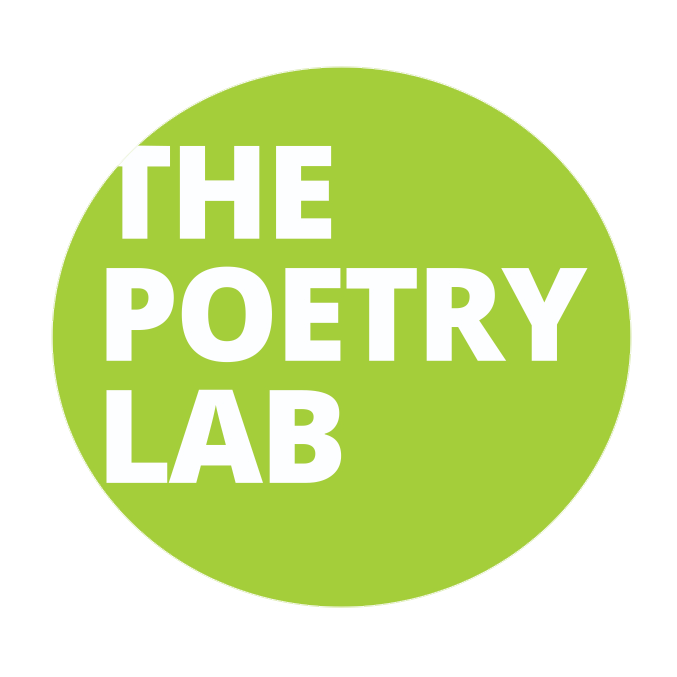
Say My Name: A Look at Name Poems
CRAFT LAB
GINGER AYLAGO BACK TO THE RESOURCE CENTER >
The subject of one’s name is perfect fodder for poetry. Our names are supercharged words in our own lives—they’re uniquely personal, often with familial origins—while also having a life of their own within their larger historical and etymological contexts.
Poet Ted Kooser provides a great description of this balance between the self and the universal. He calls this dichotomy a “moment at the window”:
"The poem is a record of that moment at the window... If you want to write a poem about yourself, you turn down the light on the world and thus brighten your reflection in the glass. If you don't want to appear very prominently in your poem you brighten the light on the world until your reflection all but disappears. But there is always this double image, made up of the poet's reflection in the glass—perhaps vivid, perhaps faint, perhaps somewhere in between—as well as what is in the world beyond, which is also to some degree vivid or faint." - from The Poetry Home Repair Manual
Name poems take this dual-image one step further: our names have aspects of both “the poet” and “the world”. In a word-obsessed art form, our names are some of the most loaded of them all: they stand-in for us.
In her recent workshop at The Poetry Lab aptly titled “Say My Name”, poet and writer Luivette Resto prompted us to consider the history of our own names: where they come from, why our parents chose them, and what it’s meant for us to have that name.
Expanding on Resto’s workshop, I’d like to look at poems about names and how they extrapolate on experiences of being named, misnamed, and everything in between.
Our Names, Our Selves
In “Un-Portrait of Frederick Douglass” by F. Douglas Brown from Icon, the speaker makes explicit the connection between one’s name and their self-identity. He relates the “F” initial in his name to two influential figures—his father and Frederick Douglass. He also pulls out several other strands of identity, tying them specifically to his middle initial:
“‘F’ for ‘food fabricated’ out of thin
boxes our church delivered to us.
“F” for food stamps or for tacos (I know
that doesn’t start with ‘F’ but fuckin’
good does).”
The extrapolation in the poem shows how our minds create meaning through our names. By the end of the poem, the speaker expresses disappointment at his “F.”:
“At this rate I will only be able
to say “failure” “frail” “feeble” “frayed” and it will mean me—”
There’s a sense of tension between the speaker’s name and his identity amidst all of the wayward associations he’s making—based on only the letter “F”.
In “Names” by Teresa Mei Chuc, the speaker recounts the experience of using multiple names over time, and trying to use a name as a vehicle back to a version of yourself:
“Now I am back to Teresa Mei Chuc, but I want to go way back.
Reclaim that name once given and lost so quickly in its attempt
to become someone that would fit in. Who is Tue My Chuc?
I don’t really know…”

The speaker wants to go further “back” into her own history and identity, suggesting that names have the power to reconcile distances. But the speaker doesn’t find resolution; she states she “[doesn’t] know” who her past name refers to. Again, names are inherently stubborn in their refusal to accurately encapsulate a person.
Cassandra Anouthay explores this idea, as well, In “First Name Cassandra, Middle Name Remembrance”:
“The other day, my birth father told me
my middle name means remembrance.
And I wonder why he chose that
since he forgot me two years later.”
The speaker’s middle name is mismatched with how she sees herself—though her “birth father” gave her both the name and the reason she doesn’t identify with it (“he forgot me two years later”).
In “alternate names for black boys”, a poem by Danez Smith, each line is a different image or idea of “black boys”. He explores injustice through the concept of naming, using tragic imagery through the implication of “alternate names”:
“7. monster until proven ghost
8. gone”
Smith is complicating identity, including no actual names but descriptive stand-ins. He also depicts Black boys as “kindling” or “fireworks”:
“12. what once passed for kindling
13. fireworks at dawn”
By putting these descriptions forward as “names”, Smith drives home the point that they are essentially shorthand for the personhood of the boys.
Violence in Misnaming
Many excellent name poems explore the harm of misnaming, often at the hands of one’s peers or in other social settings. In “On Listening to Your Teacher Take Attendance” by Aimee Nezhukumatathil, the speaker describes being misnamed by a teacher:
“…Your teacher means well,
even if he butchers your name like
he has a bloody sausage casing stuck
between his teeth...”
Social anxiety resonates in the poem: I can feel the eyes on her. In “Choi Jeong Min” by Franny Choi, the speaker also reflects on being misnamed in school:
“in the first grade i asked my mother permission
to go by frances at school. at seven years old,
i already knew the exhaustion of hearing my name
butchered by hammerhead tongues.”
Both Choi and Nezhukumatathil use the verb “to butcher” in describing classmates and teachers pronouncing their names, indicating the greater harm at stake. In “Latina Etymology” by Luivette Resto, the speaker describes being called the wrong names in school settings, as well:
“Growing up I cursed when teachers could not pronounce it on first days, cringed when strangers asked if I was part French”
Resto uses words such as “stripped”, “cursed”, “cringed”, and “dimmed” to describe the experience of being misnamed. These poems harness language to describe misnaming—whether being called the wrong name or having your name face scrutiny—and the feeling of that experience socially and psychologically.
Finding a Homeland in a Name
Of course, our names speak to more than our experiences: they also speak to our histories. In “Choi Jeong Min”, the speaker discusses home:
“…my korean name
is the star my mother cooks into the jjigae
to follow home when i am lost, which is always
in this gray country, this violent foster home
whose streets are paved with shame”
Again, there is violence associated with feeling unaligned with the culture around you. However, the speaker uses their name in the former stanza to describe an instance of her name being a vehicle or light that she can “follow home”.
In “Give Your Daughters Difficult Names” by Assétou Xango also describes how a name can signal home, and one’s determination to mesh where they are with where they come from: “Assétou is what it sounds like when you are trying to bend a syllable / into a home.”
Reclaiming Your Name
While poetry can explore the unique harm that can come from experiences with one's own name, there’s plenty of empowerment to be found in reclaiming an aspect of one’s name. The poem “etymology” by Airea D. Matthews is a fantastic example of this:
“ …so let’s end this
classist pretend where names don’t matter
& language is too heavy a lift my “e” is silent
like most people should be”
Matthews melds her name’s history and sounds with descriptions of being misnamed, zeroing in on the “classist” practice of mispronunciation that she will no longer stand for.
The poem ends with the brilliant lines:
“the tongue has no wings to flee what syllables it fears
the mouth is no womb has no right to swallow up
what it did not make”.
Similarly, “Cardamom Vowels” by Aruni Wijesinghe depicts a speaker urging confidence and empowerment in one’s own name, speaking up against those who would mispronounce or replace it:
“Unlearn a lifetime
of answering to
not your name. Make them taste
your name, their unknowing tongues
prickling with tamarind.”
Both Matthews and Wijesinghe are encouraging a change—acknowledging that while you might have allowed name-related B.S. in the past, you can “stop answering” to anything that’s not your name.
Choi gets at the same point (though in a more ironic way) in “Choi Jeong Min”, nodding toward the importance of being “seen” as your full self in these powerful lines: “i confess. i am greedy. i think i deserve to be seen / for what i am: a boundless, burning wick.”
We all deserve to be seen as—and called by—who we are.
The brilliance of poetry on naming is that poetry is—among other things—a study of words. Their power. Their implications. What better arena to hash out some of the most intimate, personal words in our vocabulary?
📚 Reading List
“Un-Portrait of Frederick Douglass”
by F. Douglas Brown from ICON
“My Name’s Not Rodriguez”
by Luis J. Rodriguez…Read 👉
“Cardamom Vowels”
by Aruni Wijesinghe…Read 👉
“Latina Etymology”
by Luivette Resto from Ascension
“Names” by Teresa Mei Chuc…Read 👉
“The Task Of Naming Me”
by Sharon Olds…Read 👉
“Etymology”
by Airea D. Matthews…Read 👉
“alternate names for black boys”
by Danez Smith…Read 👉
“On Listening to Your Teacher Take Attendance” by Aimee Nezhukumatathil…Read 👉
“Choi Jeong Min” by Franny Choi…Read 👉
“First Name Cassandra, Middle Name Remembrance”
by Cassandra Anouthay…Read 👉
Resources
View the Reading List with all the poems from this post.
Watch 👇 Assétou Xango perform her poem “Give Your Daughters Difficult Names.” Poem transcript available here.
This article was published on June 18, 2022. Written by:



